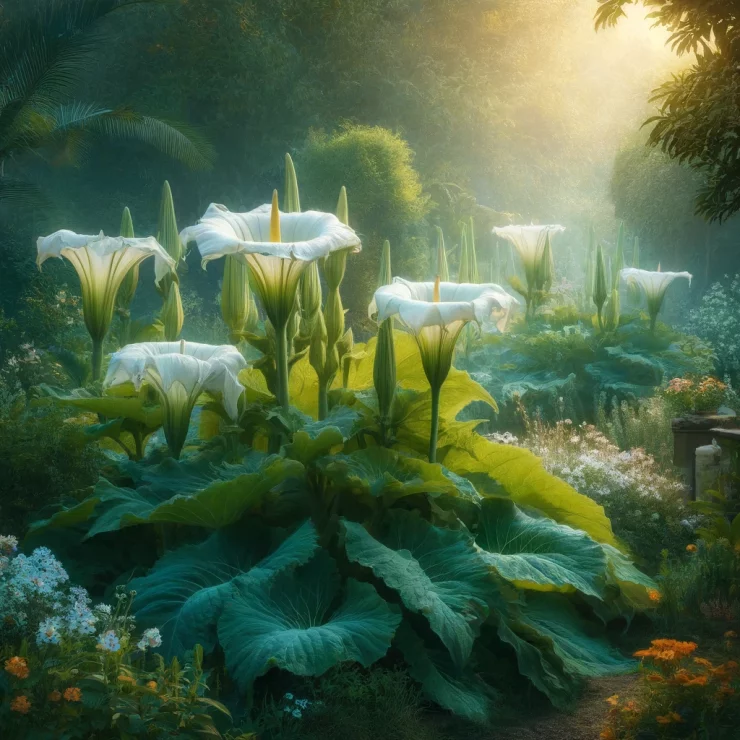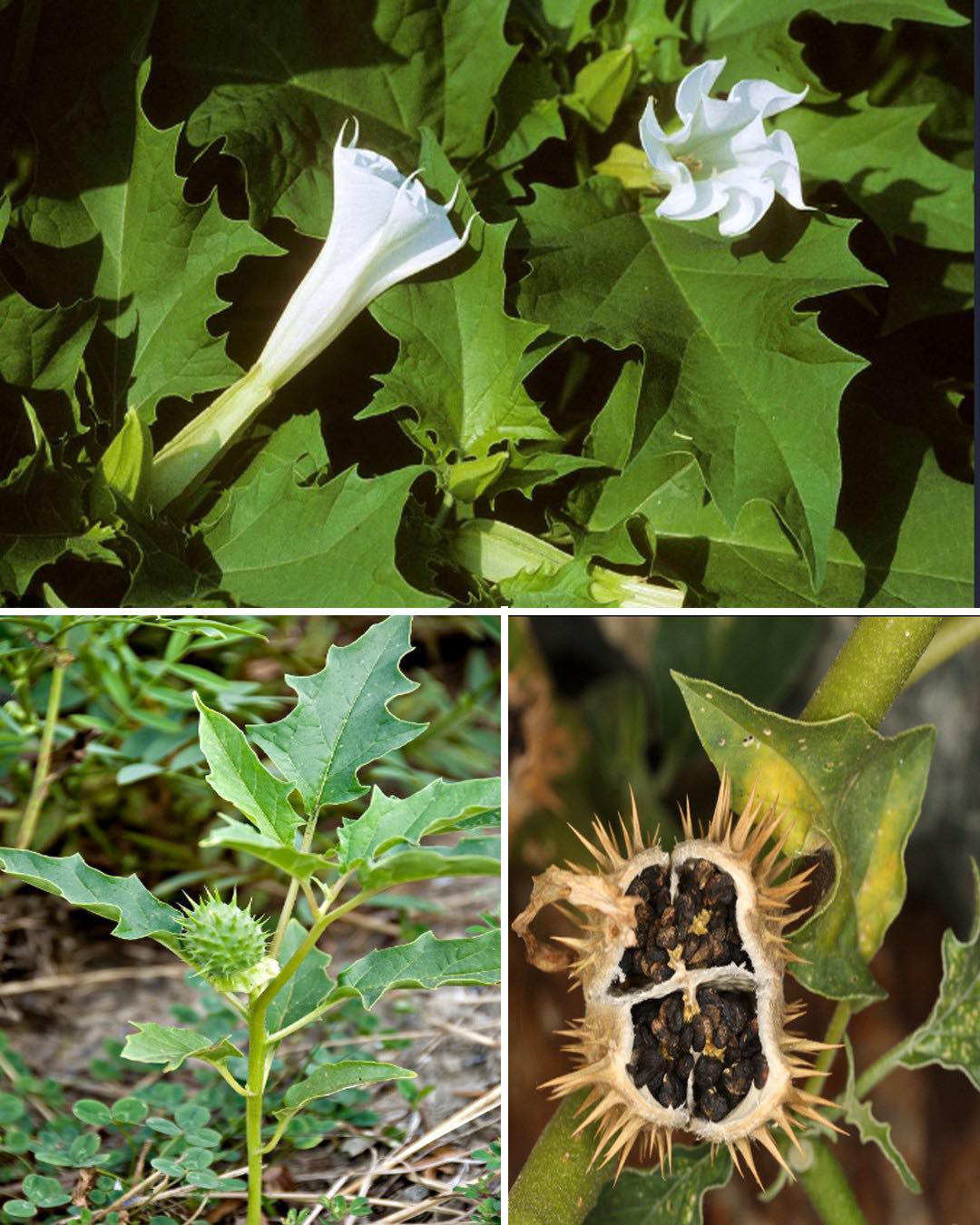In the world of gardening, there are many beautiful and popular plants that adorn gardens with their vibrant colors and lovely scents. However, among these plants, there are also some that conceal a dangerous secret. One such plant is Datura Stramonium, commonly known as Jimsonweed, Devil’s Snare, or Thorn Apple. Despite its attractive appearance, Datura Stramonium is highly toxic and can pose serious health risks if ingested or even handled improperly.

Identification of Datura Stramonium:
Datura Stramonium is a member of the Solanaceae family, which also includes tomatoes, potatoes, and bell peppers. It is an annual plant that can grow up to several feet in height and is characterized by large, trumpet-shaped flowers that can be white, yellow, or purple in color. The leaves of Datura Stramonium are also distinctive, being large, lobed, and with irregularly toothed edges.
Health Risks of Datura Stramonium:
While Datura Stramonium may be visually appealing, it contains potent alkaloids such as atropine, scopolamine, and hyoscyamine, which are highly toxic to humans and animals. Ingesting any part of the plant, including the leaves, flowers, seeds, or roots, can lead to a range of symptoms, including hallucinations, delirium, rapid heartbeat, blurred vision, dry mouth, difficulty swallowing, and even coma or death in severe cases.
Accidental Poisonings and Concerns:
Despite its toxicity, Datura Stramonium is sometimes grown in gardens for its ornamental value, and its seeds are also occasionally used in traditional medicine or as a recreational drug due to their hallucinogenic properties. However, this poses a significant risk, especially in households with children or pets who may unknowingly come into contact with the plant.

Prevention and Management:
To prevent accidental poisonings, it is essential for gardeners to familiarize themselves with the characteristics of Datura Stramonium and to exercise caution when handling or disposing of it. If you suspect that you or someone else has ingested or come into contact with Datura Stramonium, seek medical attention immediately. In cases of poisoning, prompt treatment is crucial for a successful outcome.
While Datura Stramonium may be visually striking, its potential toxicity makes it a plant best avoided in gardens and landscapes, especially in environments where children or pets are present. By being aware of the risks associated with this plant and taking appropriate precautions, gardeners can help ensure the safety of themselves and their loved ones.
Datura Stramonium may have its allure, its toxic nature underscores the importance of exercising caution when selecting plants for your garden. Always research the plants you intend to grow, and if you suspect that you have Datura Stramonium in your garden, take the necessary steps to remove it safely and prevent accidental exposure.
News
JJ Redick reacts to Luka Doncic trade for Anthony Davis
In one of the most jaw-dropping moves of the season, the NBA landscape was rocked by the blockbuster trade involving Luka Dončić and Anthony Davis—a swap that has sent ripples of excitement, disbelief, and heated discussion through the league. Among…
Anthony Davis FULL reaction to trade to Mavericks for Luka Doncic
In a blockbuster move that sent shockwaves through the NBA and left fans reeling, Anthony Davis has been traded to the Dallas Mavericks in exchange for Luka Dončić. In the immediate aftermath of the news, Davis took to the media…
Shaq reacts to Dallas Mavericks wanting Kevin Durant after Luka-AD trade 👀
In the constantly shifting world of the NBA, trade rumors and blockbuster moves are a regular part of the season’s drama. The latest twist has fans buzzing: the Dallas Mavericks have reportedly set their sights on acquiring Kevin Durant in…
Donovan Mitchell FILTHY poster dunk on Kristaps Porzingis 😳
In a game filled with high-intensity moments and jaw-dropping highlights, one play in particular has left fans and analysts buzzing about Donovan Mitchell’s latest display of athleticism. Early in the contest, with the atmosphere already charged by an evenly matched…
Joel Embiid hits go-ahead bucket vs Mavs then chats with Anthony Davis after game
In one of the most thrilling contests of the season, Joel Embiid delivered a clutch performance against the Dallas Mavericks, punctuating the game with a go-ahead bucket that sent the home crowd into a frenzy. The atmosphere in the arena…
D’Angelo Russell game winner as Nets hit two 3’s in 3 seconds to win vs Rockets 😱
In one of the most electrifying moments in recent NBA history, D’Angelo Russell delivered an unforgettable game-winner that left fans and commentators in complete awe. With the Brooklyn Nets locked in a tense battle against the Houston Rockets, the outcome…
End of content
No more pages to load











